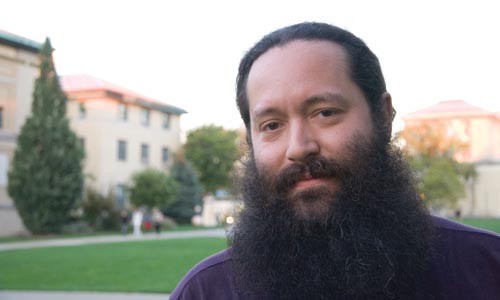
After a lengthy campaign to verify the tallies of electronic-voting machines, local activists may have finally found a testing method that elected officials believe in.
Getting those officials to do something in time for the presidential election, however, is another matter.
On Sept. 9, all 15 members of Allegheny County Council approved a motion "urging" the county's Board of Elections to test the software that tallies ballots on county voting machines. The move is necessary, the resolution contended, because "software can be changed ... with relative ease," potentially making a shambles of the county's vote.
It's the third time since June that such a measure has received unanimous support, but the Board of Elections has yet to discuss the issue. That's puzzling, since two of the board's three members -- John DeFazio and Chuck McCullough -- are on County Council too. In other words, for the past three months DeFazio and McCullough have been "urging" themselves to address the issue -- then ignoring the urge.
The program that voting machines use must be certified by the state and federal governments. But it's crucial to make sure that each voting machine has an exact copy of the program, says David Eckhardt, a computer-science professor at Carnegie Mellon University.
Voters "should be able to understand that their vote should be recorded as cast and tallied as recorded," says Eckhardt, who has been active on this issue since before the county acquired more than 4,000 "iVotronic" touch-screen voting machines in 2006.
Activists worry that the iVotronic's manufacturer, Election Systems & Software, could change its software without notifying anyone. Worse, someone could tamper with its software, prompting the machine to disgorge preprogrammed results. According to a 2007 report from Ohio's Secretary of State, the iVotronic in particular could be tampered with merely by using a magnet and a Palm Pilot.
Tim Johnson, the county's director of administration, says that each voting machine is given a trial run before an election. "Although it's not specific testing of the software," Johnson says, "it is testing the specific performance of the machine which is controlled by the software."
But Eckhardt contends that malicious software -- or "malware" -- would probably function perfectly until signaled to perform differently. He and others recommend testing the machines with memory-chip readers: An elections official would pull the machine's memory chip and read it, using a device that would compare the instructions on the chip to the proper code.
County Executive Dan Onorato, perhaps the Election Board's most influential member, is "open to the idea" of software verification, says spokesman Kevin Evanto. "We've had these machines and used them for three elections now," he notes. "They've been operating as expected." He is uncertain why the Board hasn't addressed the subject since June, though he adds that "as far as I know, we haven't received a detailed explanation" of how verification might be done.
But Eckhart says that's not for a lack of trying
"Because we believe this matter affects everybody in the county and should be handled in a public fashion, we have been attempting since June to meet with the Board of Elections to present our proposal -- including attending the Sept. 2 meeting of the Board, at which we were not permitted to speak," he says. "If the Board of Elections is not the correct venue for discussion of this issue, we are of course open to suggestions from Mr. Onorato as to how we should proceed."
The election board's next scheduled meeting is Oct. 21, 15 days before the election. Evanto says that may still leave enough time to conduct the verification.
As for board members DeFazio and McCullough, neither responded to several inquiries from City Paper. But Council Vice President Chuck Martoni, who has been the prime force behind the motions, says DeFazio "promised he'd take some action soon." And McCullough, he says, also "seemed very interested."
Ever since the mechanical-lever machines were scrapped -- part of a nationwide effort to avoid another "hanging chad" election fiasco -- locals have asked for ways to verify the vote. Before the county purchased the iVotronic machines, election-protection groups were calling for paper records on electronic voting.
"Without having another software-independent mechanism" such as paper records, "we're stuck trusting the software completely," says Collin Lynch, president of VoteAllegheny. "If you intend on trusting our democracy to a piece of equipment, you just have to test" that the machine arrived as advertised.
A group of 25 voters from the Pittsburgh area and points east is suing Pennsylvania's secretary of state, saying the certification process is inadequate; the plaintiffs are waiting to hear whether the state Supreme Court will take the case. Their attorney, Marian Schneider of Berwyn, Pa., points to Wayne, Lackawanna and Northampton counties, where, prior to recent elections, vendors loaded uncertified software into their machines. The incident resulted in the decertifying of that particular model.
"Nationwide, people are throwing these things out," Eckhardt says, pointing to moves by Florida and Ohio to get rid of touch-screens. In August, Centre County, in central Pennsylvania, became the latest county to toss out touch-screens in favor of paper ballots, which are optically scanned at the voting place and kept for a possible hand recount.
Part of the problem, activists say, is that electronic machines are inscrutable. "Any auto mechanic, given a week of training, could open up our old lever machines and see if its gears are correct" and hadn't been tampered with, says Eckhardt, the computer scientist. The electronic hardware of electronic machines, with their thousands of tiny transistors, is much harder to verify. But Eckhardt says, "The low-hanging fruit here is that you can see if you have the right software."
The state's lead certification tester, Michael Shamos, has long disputed activists who say a paper record is more reliable. He notes that there has not been a proven case of software tampering, and says activists are "spreading fear" about it.
Pennsylvania's 67 counties "don't have personnel for testing," says Shamos, who teaches computer science at CMU. "They don't have budgets for it." And such testing would just spawn further doubt, he adds: After all, "Do we know that the [chip-reading] machine is not implanting malware?"
But Marybeth Kuznik, the head of VotePA, remains adamant. Software testing "is the only thing that stands between us and being at the total whim of the vendors," she says. Her group is calling for all software-dependent machines to be tested similarly in each county. Verification should be done before and after each election "if it is to be done meaningfully," she says.
When the machines first arrived, they were paid for with millions in federal money under the Help America Vote Act of 2002; the local League of Women Voters chapter was not in favor of them, says Suzanne Broughton, the organization's president. But when county officials asked the League to help demonstrate the machines to the public, its members found a bigger problem: People didn't know how to use the machines correctly, let alone understand how they could be tampered with. "[T]he public had not gotten beyond the question of usability to get to the question of security," Broughton says. "I don't think that has changed."
"If the federal government would drop another batch of money on us," she speculates, Onorato "might well change those machines."














